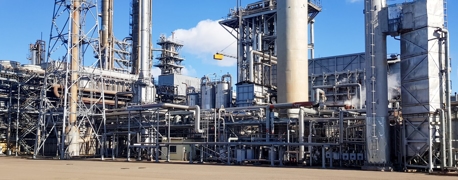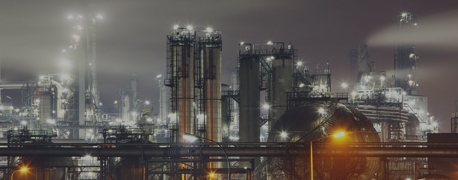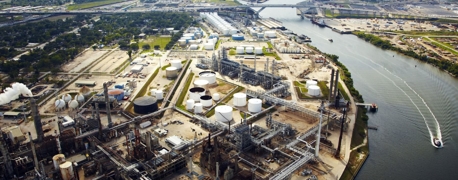Why Do Chemical Plant Explosions Keep Happening in Houston?

During March and April of 2019, the skies of Houston resembled scenes from a disaster film. Residents of communities surrounding the city had to shelter in place twice within a span of two weeks as two separate chemical plant explosions sent plumes of black smoke into the air. First, the Intercontinental Terminals Company’s (ITC) petrochemical storage facility in Deer Park erupted in flames and burned for multiple days. Then, the KMCO chemical plant in Crosby exploded, killing one worker and severely injuring two more. Both incidents triggered reports of illness in surrounding communities and caused authorities to issue shelter-in-place orders for those living near the plants.
Unfortunately, these were not isolated incidents, and although they sparked concerns among residents and local officials, Houston has continued to experience serious incidents at plants and refineries, as well as other industrial facilities in the region.
Recent Plant Explosions in the Houston Area
On January 24, 2020, a massive explosion at Watson Grinding in northwest Houston claimed two workers’ lives and scattered debris as far as half a mile away. The blast was so powerful that it damaged about 200 nearby buildings, blasted nearby homes from their foundations, collapsed ceilings, bent garage doors, and shattered windows. A resident whose home was impacted by debris died as a result of his injuries about a week later.
According to a final report by the U.S. Chemical Safety Board (CSB), the explosion was caused by the release of propylene from a “degraded and poorly crimped” rubber welding hose that was disconnected from its fitting, leading to a gas accumulation that likely ignited when an employee entered the building early that morning and turned on a light switch. The CSB also identified that the gas detection alarm, exhaust fan startup, and gas shutoff system were inoperable, creating a situation where propylene gas leaked undetected—until it ignited and exploded.
On July 27, 2021, a catastrophic chemical release at the LyondellBasell plant in La Porte, Texas, caused the deaths of two contract workers and injured 30 others. The incident involved the unintended release of approximately 164,000 pounds of an acetic acid mixture at 238°F during maintenance activities. According to the CSB's final report, the release was caused by the inadvertent removal of pressure-retaining components from a plug valve, leading to the rapid discharge of the hazardous chemical. The CSB identified contributing factors including inadequate training, insufficient hazard recognition, and deficiencies in the facility's safety management systems.
On May 5, 2023, a significant fire erupted at the Shell Deer Park chemical plant in Deer Park, Texas. The blaze originated in the Olefins 3 Unit, which produces ethylene, and burned throughout the weekend before being extinguished. While no injuries were reported, the fire prompted a substantial emergency response and raised concerns about the facility's safety practices. The Texas Commission on Environmental Quality (TCEQ) conducted air quality monitoring and reported no harmful levels of chemicals in the air. The CSB has initiated an investigation into the incident to determine its root causes and prevent future occurrences.
On October 10, 2024, a deadly release of hydrogen sulfide gas occurred at the PEMEX Deer Park refinery in Deer Park, Texas, during maintenance activities on an amine regeneration unit. The incident resulted in the deaths of two contract workers and injuries to 13 others. Approximately 27,000 pounds of hydrogen sulfide were released over the course of an hour. The CSB's investigation revealed that the release was due to the improper removal of an isolation blind from piping that normally transports hydrogen sulfide gas. Contributing factors included inadequate hazard identification, insufficient training, and the absence of effective safety management systems.
The circumstances surrounding each of these incidents may be different, but they share a common thread: preventable safety failures. These disasters weren’t just accidents—they were the result of missed warnings, ignored protocols, and companies putting production ahead of protection.
Lack of Regulation
Elena Craft, senior director for health and climate at the Environmental Defense Fund, criticized the Texas Commission on Environmental Quality (TCEQ) in a Houston Chronicle op-ed published shortly after the 2019 Deer Park fire. Craft accused the TCEQ of being “missing in action—unable or unwilling to protect the health and well-being of Texas families.” She emphasized that the agency has essentially allowed companies to self-regulate, encouraging lax safety policies and dangerous conditions in plants throughout Houston.
Craft’s observations are not unfounded. A Houston Chronicle investigation in 2016 found a systemic lack of safety in Houston plants. However, state agencies are not the only groups struggling with enforcement. In its investigation, the Chronicle found that less than 400 federal inspectors are expected to oversee 15,000 plants on a budget of $50 million annually. So, companies are regulating themselves, and the results of their poor safety practices are going up in smoke and falling onto Houston residents.
Texas Has a History of Plant Explosions
One of the state’s deadliest plant explosions happened in 2013 in West, Texas. When the West Fertilizer Company’s plant exploded, it claimed the lives of 15 people, injured hundreds, and caused millions of dollars in damage to buildings throughout West.
Though this event triggered reforms of the nation’s chemical safety laws, some safety officials still regard them as relatively ineffective due to the lack of funding for regulating agencies. The EPA announced in May 2025 that it would be cutting its budget by $300 million in 2026, reducing staffing and eliminating its research and development office.
Plant Owners & Operators Need to Do Better
Regulators can create rules, but they can’t be on every catwalk or inside every control room 24/7. In Texas, the TCEQ is stretched thin, so the real gatekeepers of safety are the plant owners and operators themselves. They know when piping is overdue for testing, when valves are corroded, and when alarms are ignored or disabled to keep production humming. Too often, they choose profit over precaution.
Nowhere is that choice clearer than during “turnarounds,” the planned shutdowns when units are cleaned, repaired, or replaced. A full turnaround can cost a refinery millions of dollars per day in lost output, so management squeezes the schedule, defers critical maintenance, or restarts units before safeguards are fully verified.
The result? Leaking seals, brittle metal, over-pressurized reactors, and the kind of chain-reaction failures that level buildings and end lives.
Texas law doesn’t excuse shortcuts just because oversight is limited. The duty to operate safely is non-delegable: companies must invest in reliable equipment, thorough inspections, and comprehensive training and safety protocols. When they don’t—when they gamble on thin margins and people get hurt—Arnold & Itkin holds them accountable.
- Categories


